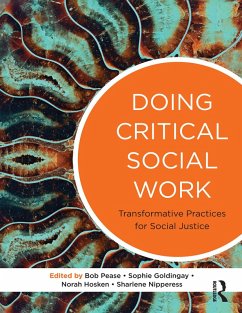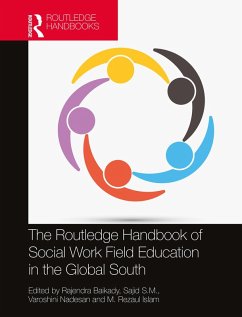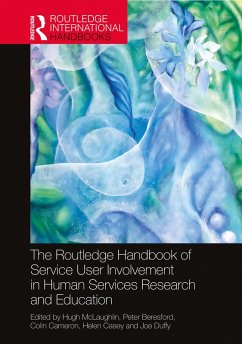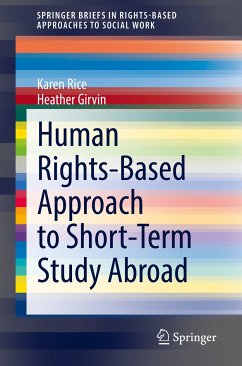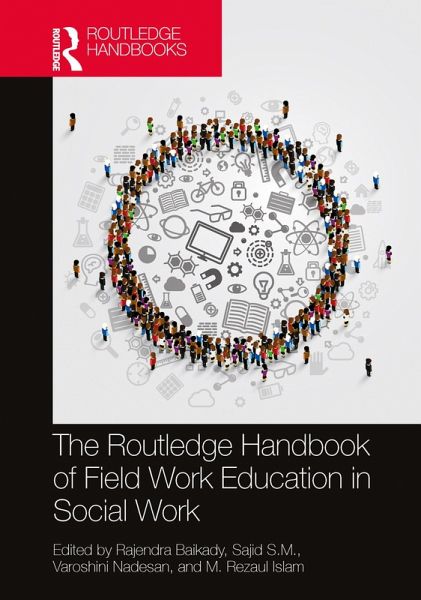
The Routledge Handbook of Field Work Education in Social Work (eBook, PDF)
Versandkostenfrei!
Sofort per Download lieferbar
43,95 €
inkl. MwSt.
Weitere Ausgaben:

PAYBACK Punkte
22 °P sammeln!
This Handbook provides an authoritative account of international fieldwork education in social work. It presents an overview of advances in research in social work field education through in-depth analyses and global case studies.Key features: Discusses critical issues in teaching social work and curriculum development; health care social work; stimulated learning; field education policies; needs, challenges, and solutions in fieldwork education; reflexivity training; creativity and partnership; resilience enhancement; integrated and holistic education for social workers; student experience; p...
This Handbook provides an authoritative account of international fieldwork education in social work. It presents an overview of advances in research in social work field education through in-depth analyses and global case studies.
Key features:
This Handbook will be an essential resource for scholars and researchers of social work, development studies, social anthropology, sociology, and education. It will also be useful to educators and practitioners of social work in global institutions of higher studies as well as civil society organisations.
Key features:
- Discusses critical issues in teaching social work and curriculum development; health care social work; stimulated learning; field education policies; needs, challenges, and solutions in fieldwork education; reflexivity training; creativity and partnership; resilience enhancement; integrated and holistic education for social workers; student experience; practice education; and ethical responsibility of social work field instructors
- Covers social work field education across geographical regions (Asia and the Pacific; North and South America; Australia and Oceania; Europe) and major themes and trends from several countries (U.S.A.; Canada; Australia; China; Hong Kong; Sweden; Aotearoa New Zealand; England; Ukraine; Spain; Estonia; Italy; Ireland; Slovenia; Poland; Romania; Greece; Norway; Turkey; and the Czech Republic)
- Brings together international comparative perspectives on fieldwork education in social work from leading experts and social work educators
This Handbook will be an essential resource for scholars and researchers of social work, development studies, social anthropology, sociology, and education. It will also be useful to educators and practitioners of social work in global institutions of higher studies as well as civil society organisations.
Dieser Download kann aus rechtlichen Gründen nur mit Rechnungsadresse in A, B, BG, CY, CZ, D, DK, EW, E, FIN, F, GR, HR, H, IRL, I, LT, L, LR, M, NL, PL, P, R, S, SLO, SK ausgeliefert werden.





